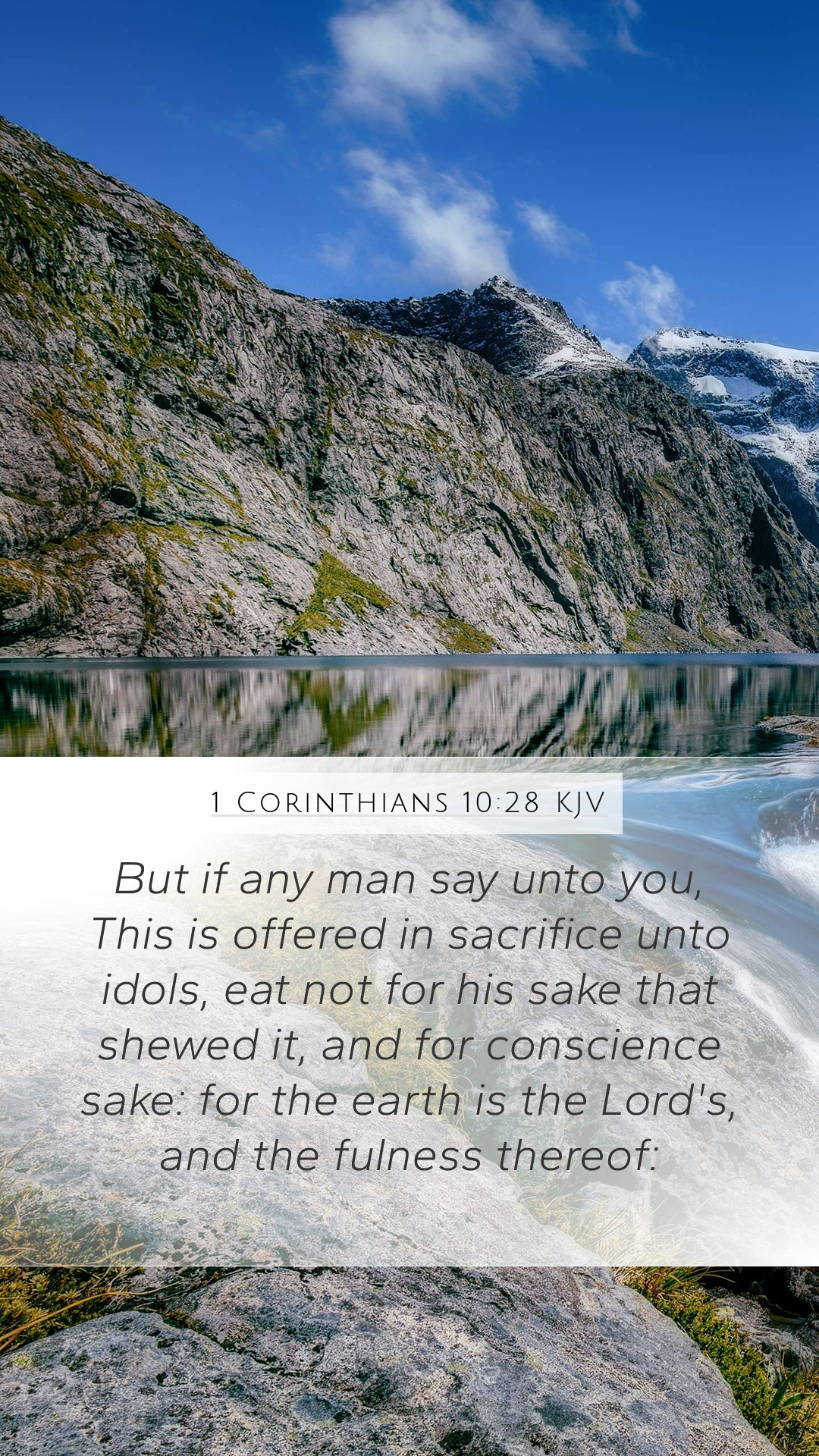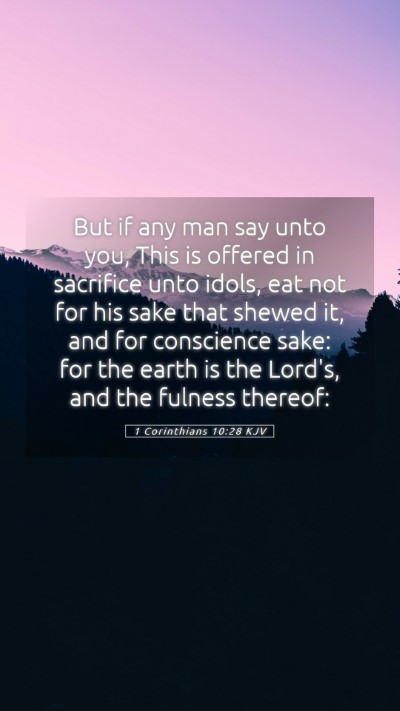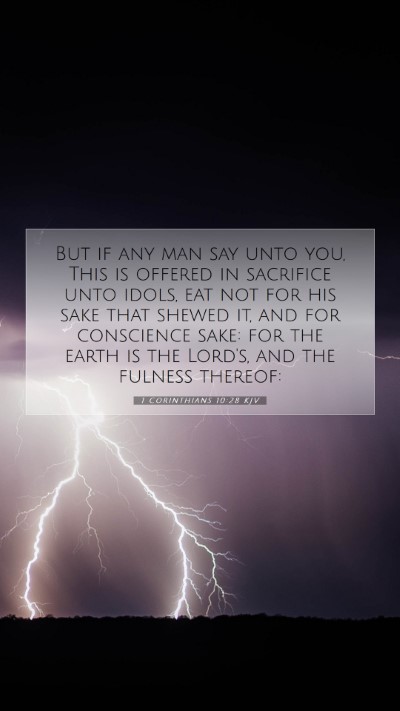Bible Verse Meaning and Commentary for 1 Corinthians 10:28
Verse: 1 Corinthians 10:28 - "But if any man say unto you, This is offered in sacrifice unto idols, eat not for his sake that showed it, and for conscience' sake: for the earth is the Lord's, and the fullness thereof."
Understanding the Verse
This verse addresses the complex issue of eating food that has been sacrificed to idols. Paul emphasizes the importance of considering the conscience of others in the community when making such personal decisions. The core message revolves around the principle of love and respect for fellow believers.
Contextual Background
In Corinthians, Paul is writing to a congregation wrestling with how to navigate their faith amidst a society rife with pagan practices. The food in question symbolizes a greater moral and spiritual dilemma, illustrating the balance between personal freedom and the responsibilities that come with it.
Commentary Insights
- Matthew Henry: Henry highlights the need for sensitivity toward weaker brothers in faith. He notes that exercising liberty without regard for others can lead them to stumble in their faith. His commentary emphasizes that believers should prioritize love over liberty.
- Albert Barnes: Barnes focuses on the notion of conscience, suggesting that what might be permissible for one person could be detrimental to another. He argues that the awareness of how one's actions may influence others is critical for maintaining community harmony.
- Adam Clarke: Clarke elaborates on the theological truth that the earth, and everything within it, belongs to God. He interprets this statement to mean that believers have the freedom to partake in God’s creation, but this freedom must be tempered by love and consideration for others.
Theological Implications
1 Corinthians 10:28 serves as a reminder of the balance between personal rights and communal responsibilities. The theological implications extend to various areas of Christian Ethics and highlight the significance of love in decision-making.
Application of the Verse
When faced with decisions that could affect others, Christians are urged to think beyond their personal desires. This verse calls for a selfless approach that aligns with the broader teachings of Jesus regarding love and service to others.
Practical Steps for Application
- Assess your freedoms in light of how they may impact fellow believers.
- Engage in discussions with your Bible study groups about personal liberties and community ethics.
- Regularly read and reflect on Scripture to enhance your understanding of love and responsibility.
Related Bible Cross References
- Romans 14:13: "Let us not therefore judge one another any more: but judge this rather, that no man put a stumblingblock or an occasion to fall in his brother's way."
- 1 Corinthians 8:9: "But take heed lest by any means this liberty of yours become a stumblingblock to them that are weak."
- Galatians 5:13: "For, brethren, ye have been called unto liberty; only use not liberty for an occasion to the flesh, but by love serve one another."
Conclusion
The verse 1 Corinthians 10:28 encapsulates significant teachings about the exercise of Christian freedom in relation to communal conscience. It is a vital scripture for understanding how to navigate personal choices responsibly while fostering faith within the Christian community.
Final Notes on Study and Reflection
As you explore this scripture further through online Bible study tools, consider how it applies in modern contexts and personal relationships. Engage deeply with the meanings and implications of such verses to enrich your understanding of the Bible and its teachings.


